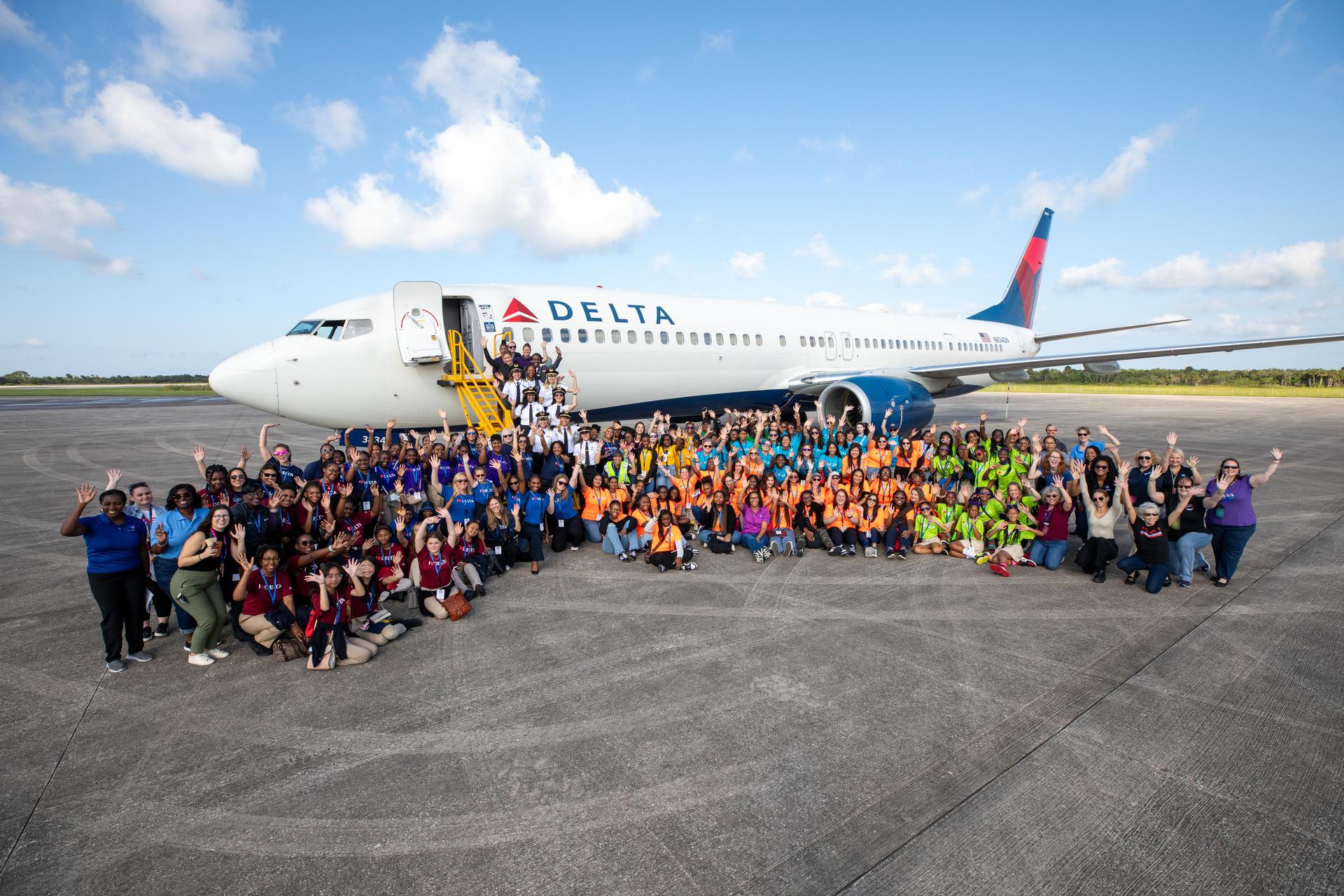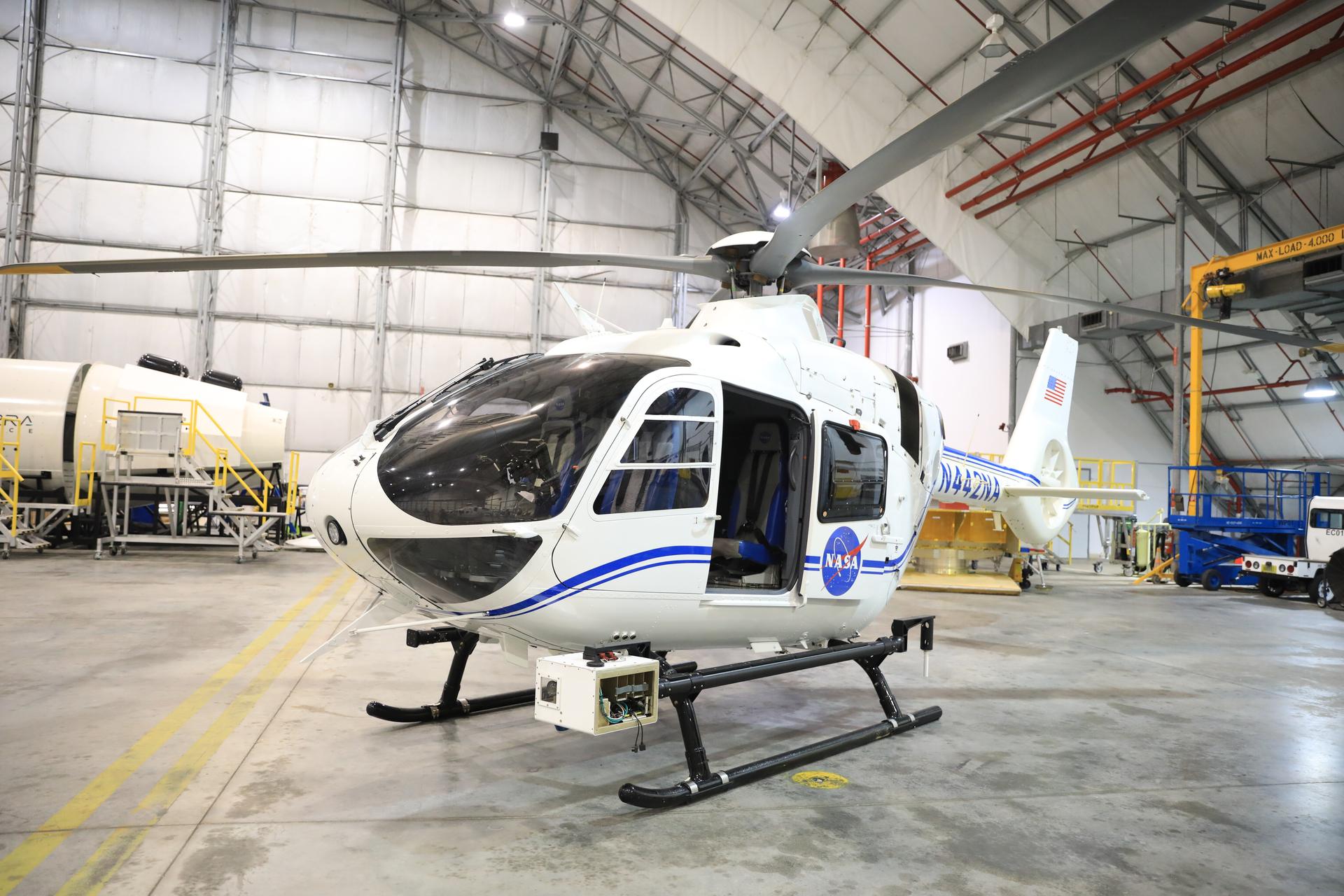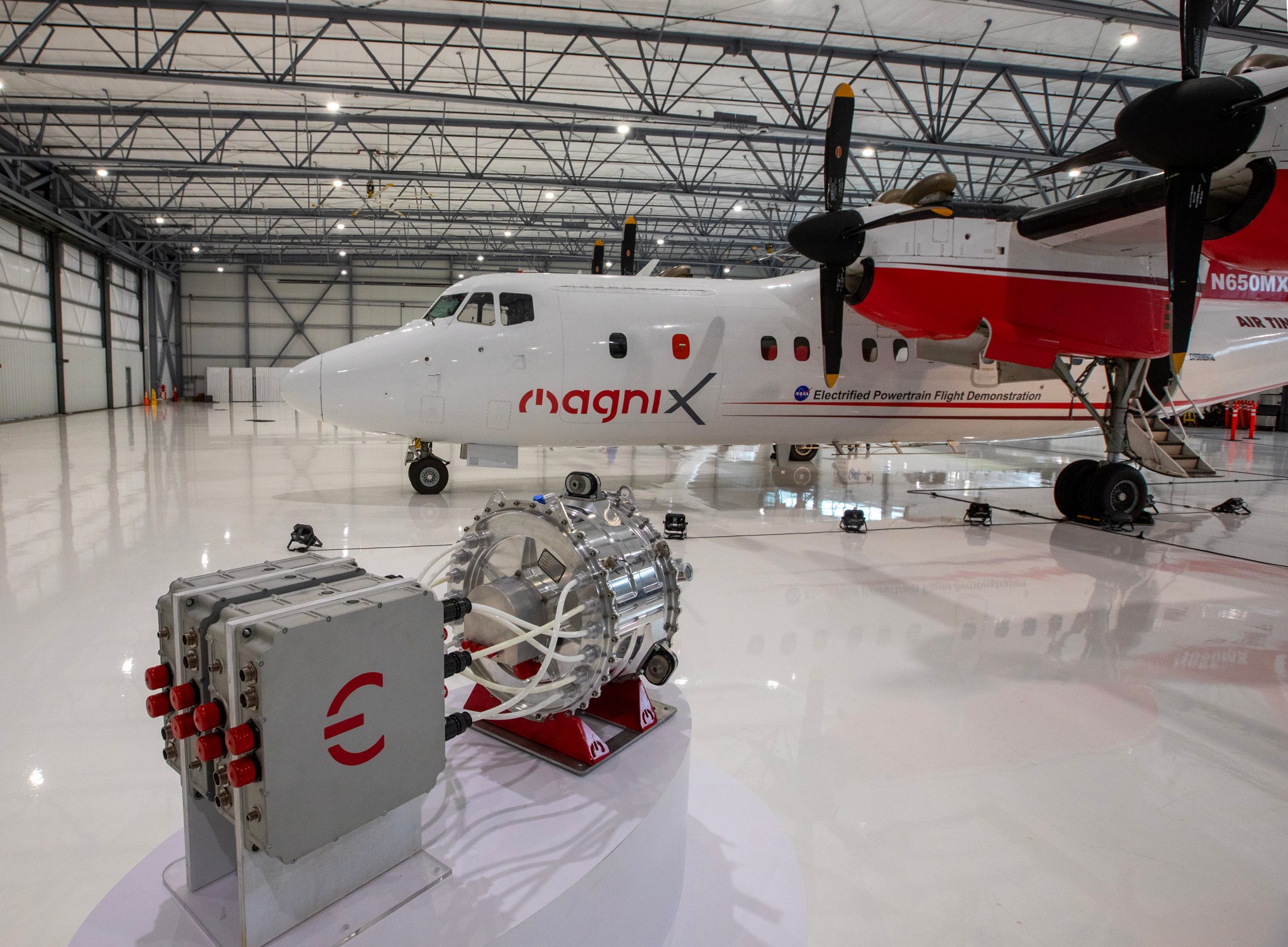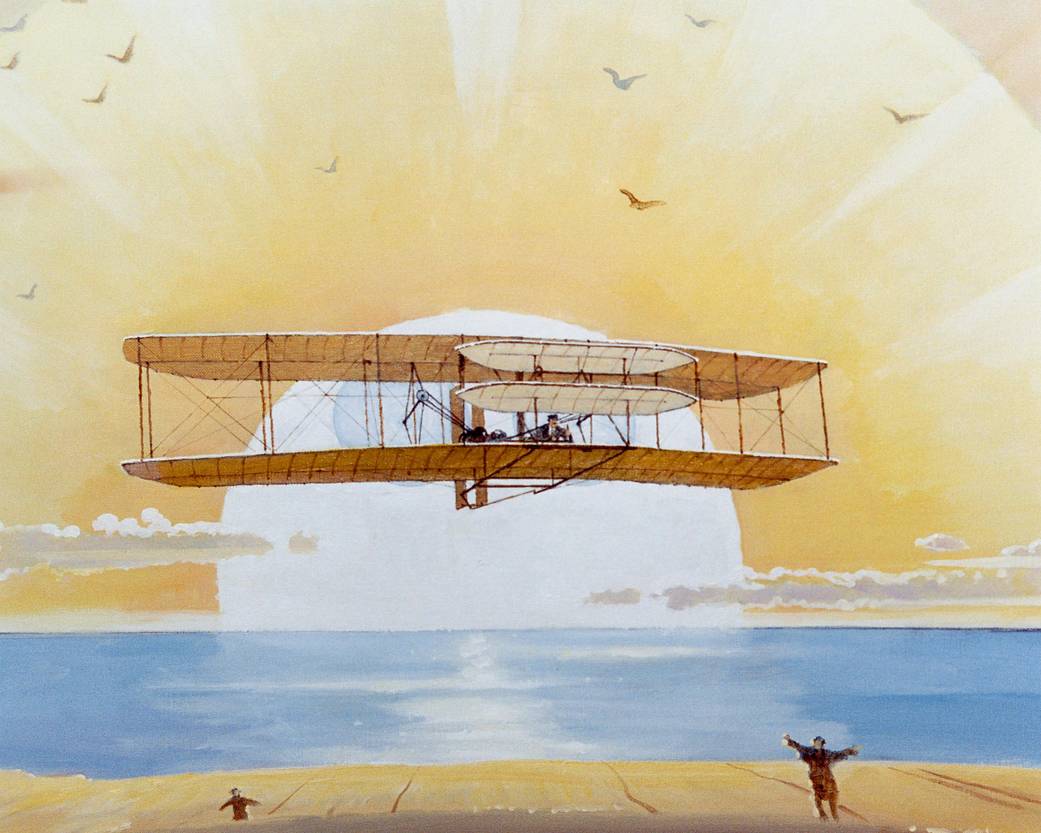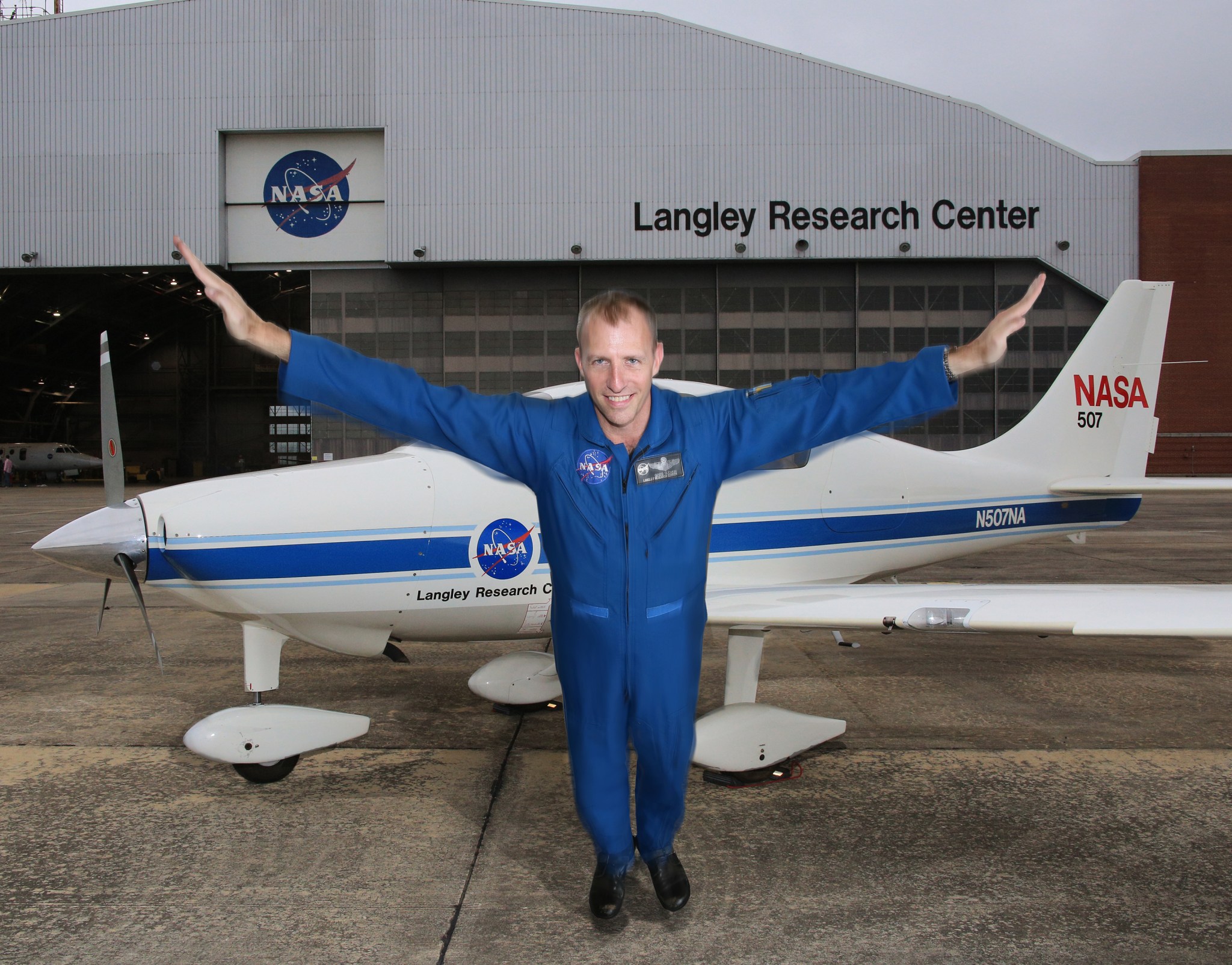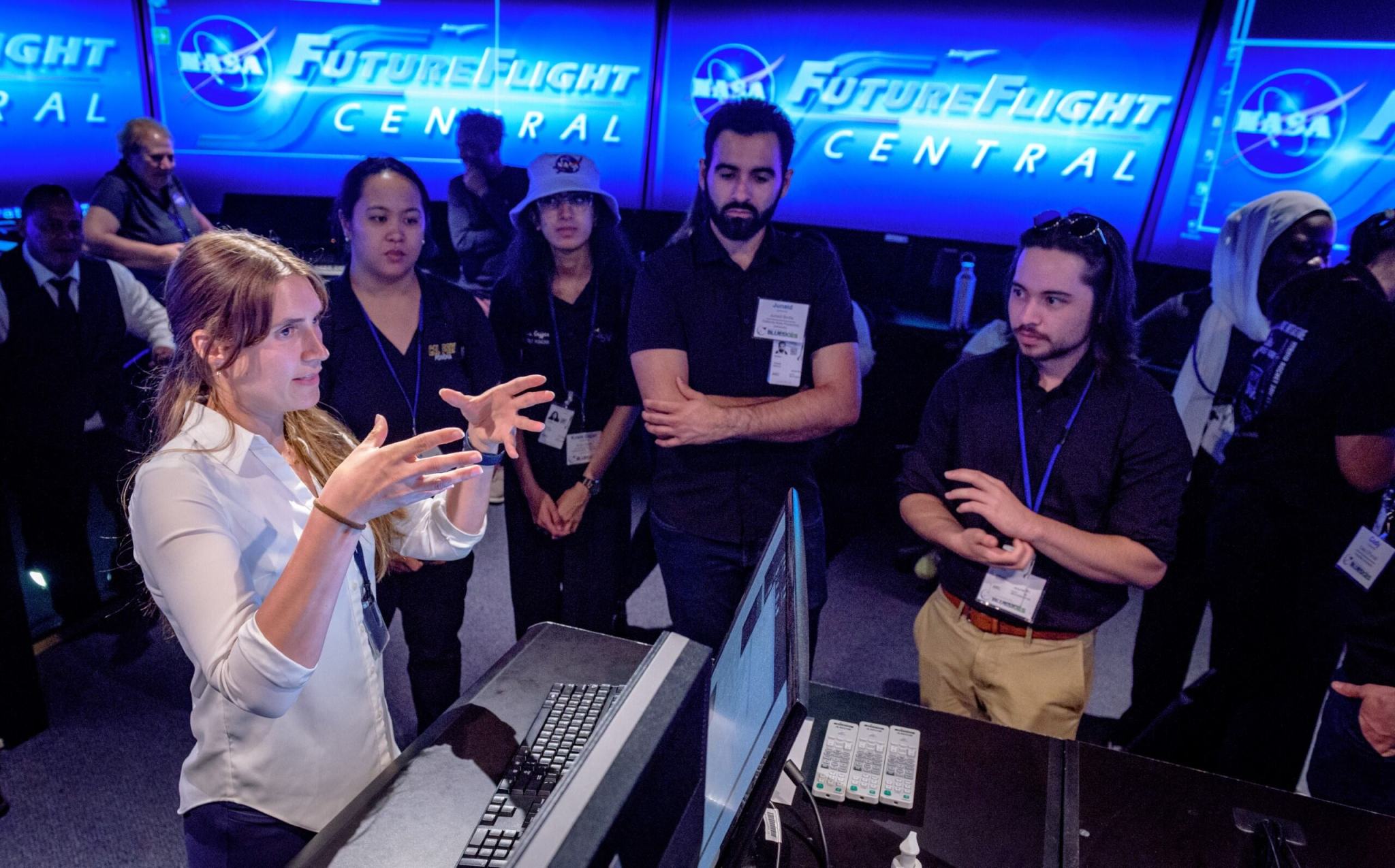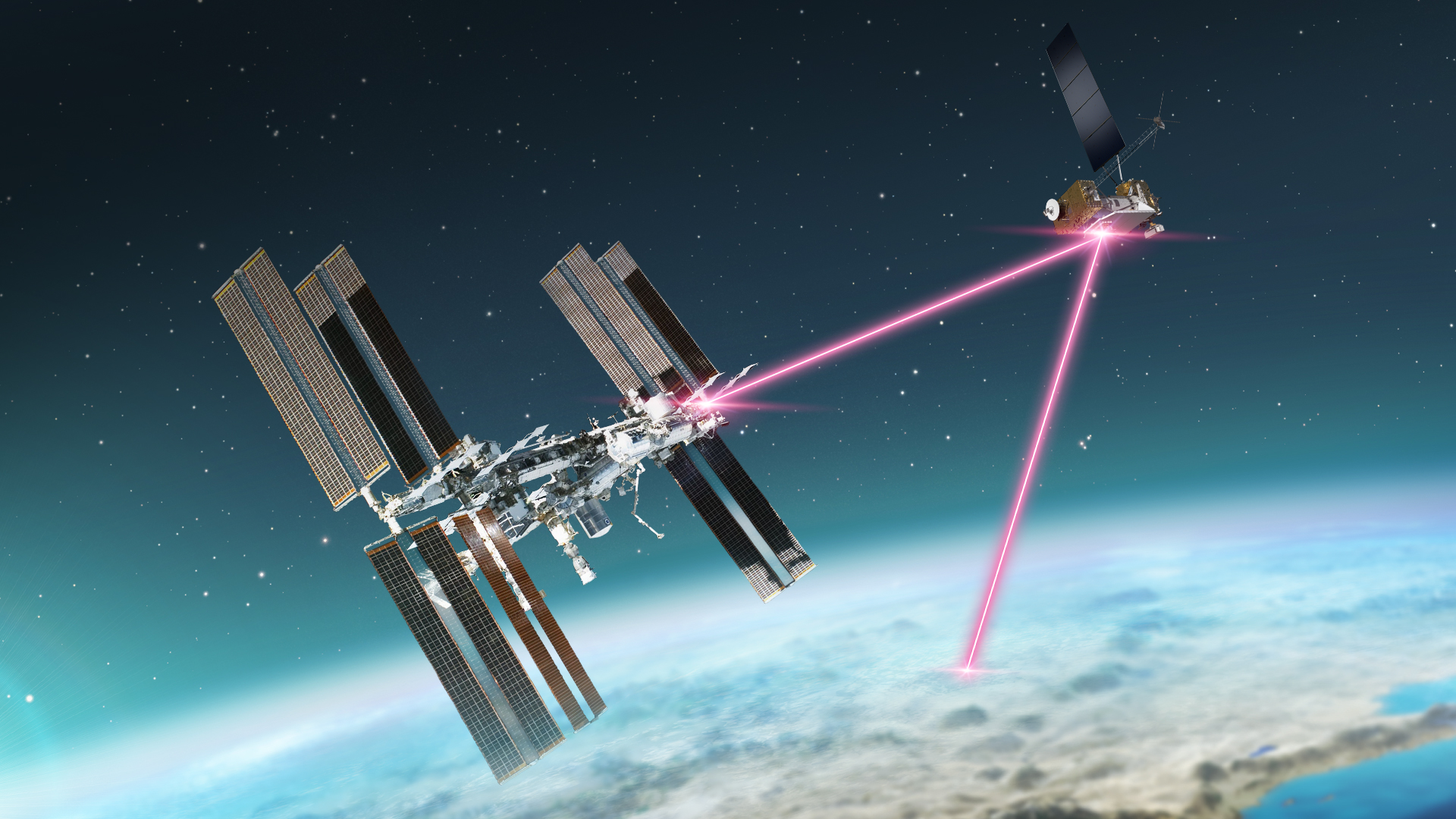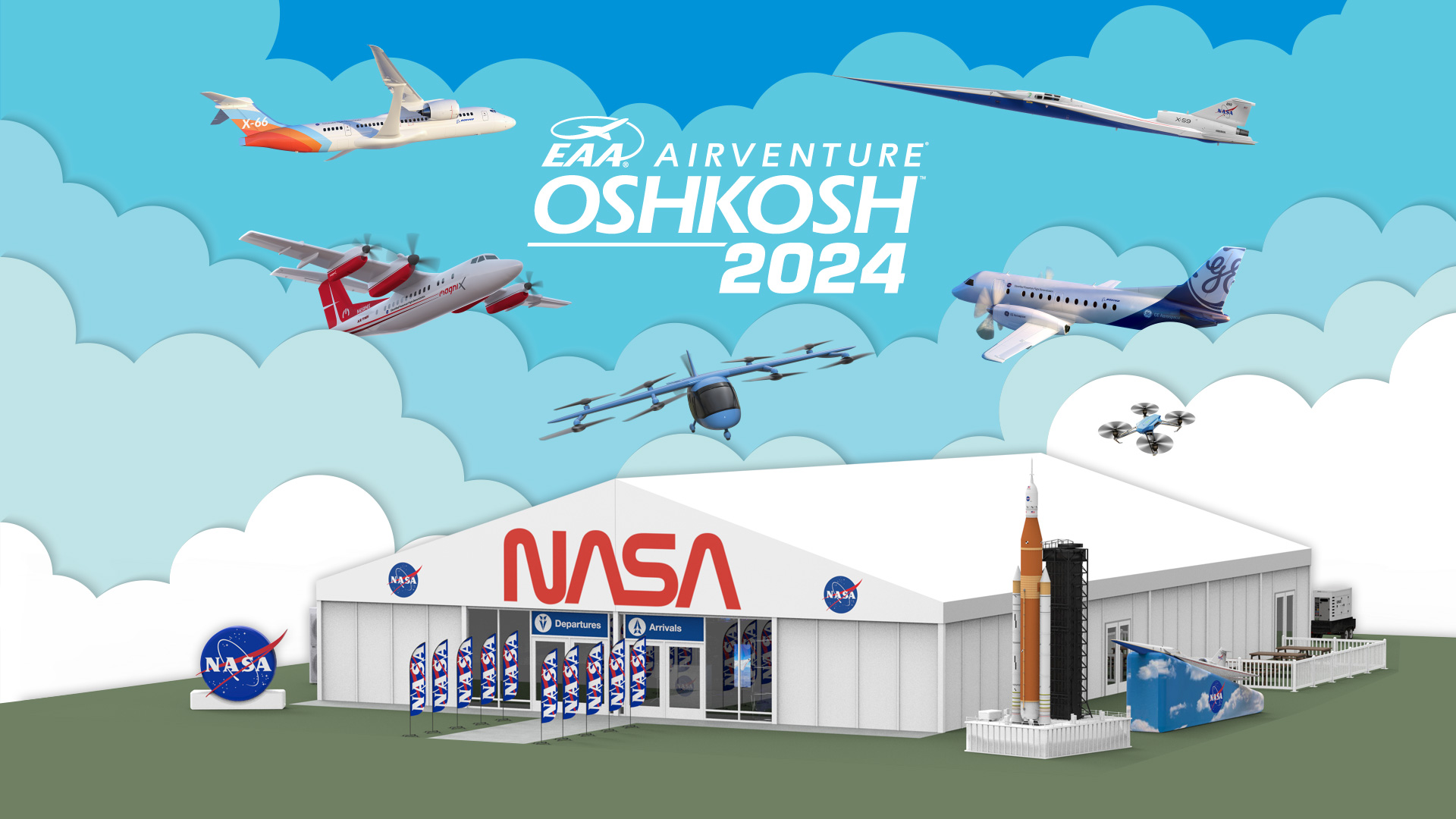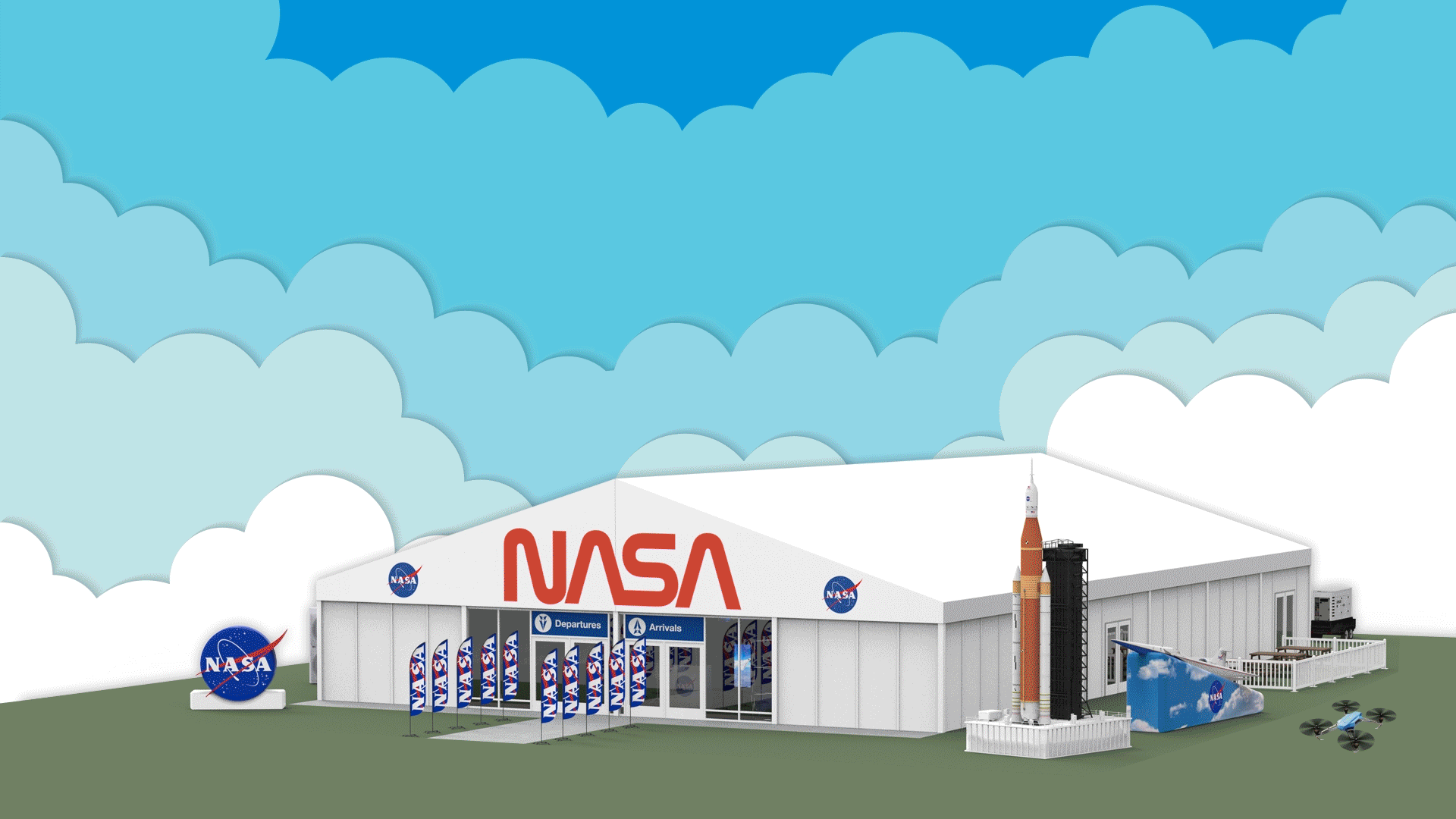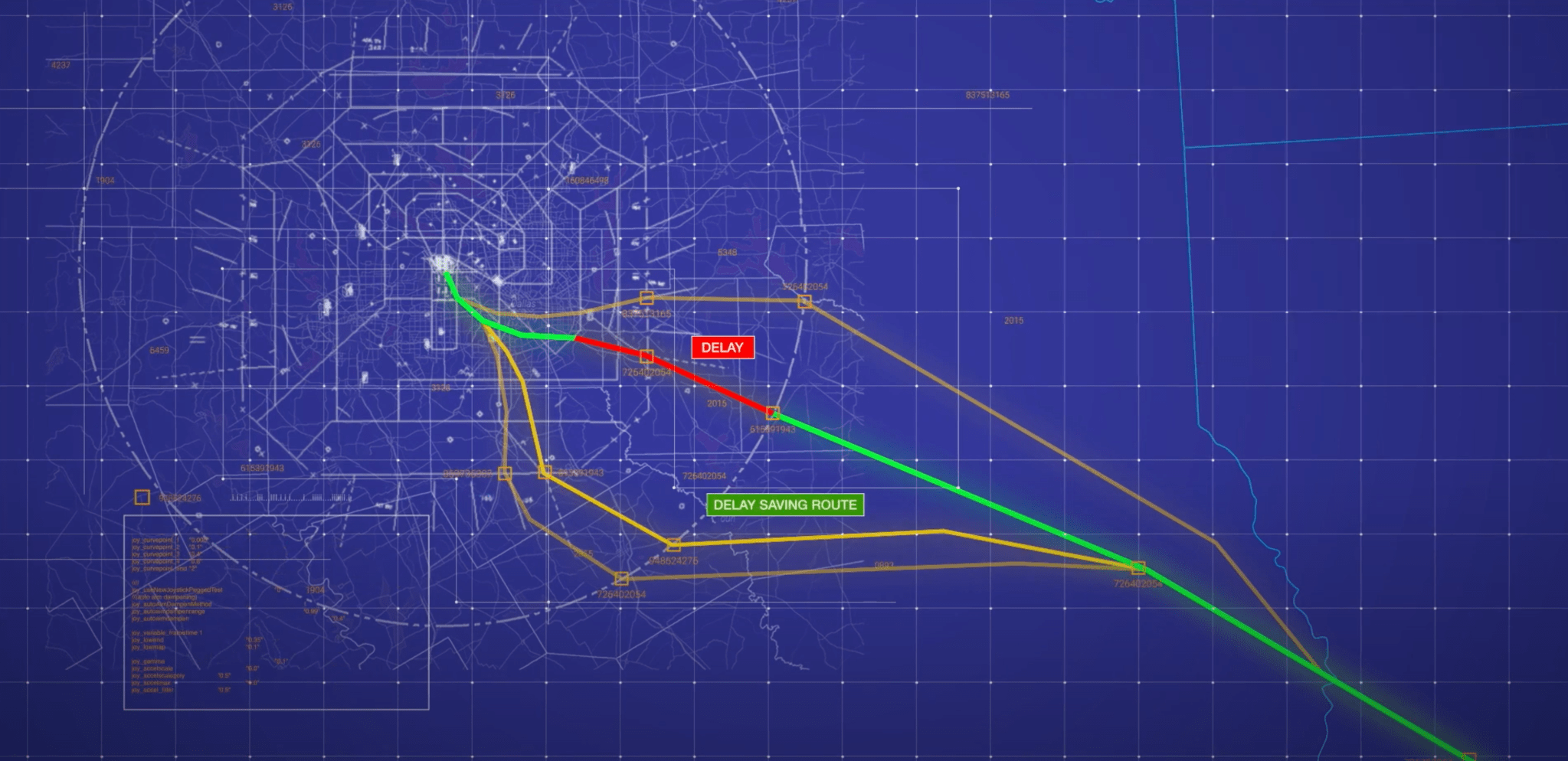Young women, ages 11 to 18, from Atlanta, Georgia, with interests in STEM (science, technology, engineering, and math), pose for a photo on Friday, Sept. 20, 2024, at the Launch and Landing Facility following their arrival at NASA’s Kennedy Space Center in Florida. The Delta Air Lines Women Inspiring Our Next Generation (WING) flight, with the help of NASA Kennedy, showcases the various women-led STEM careers available at the Florida spaceport. NASA/Kim Shiflett For the third straight year, scores of young women flew to NASA’s Kennedy Space Center in Florida…
Read MoreTag: Aeronautics
NASA Develops Pod to Help Autonomous Aircraft Operators
The NASA Airborne Instrumentation for Real-world Video of Urban Environments (AIRVUE) sensor pod is attached to the base of a NASA helicopter at NASA’s Kennedy Space Center in Cape Canaveral, Florida in April 2024 before a flight to test the pod’s cameras and sensors. The AIRVUE pod will be used to collect data for autonomous aircraft like air taxis, drones, or other Advanced Air Mobility aircraft. NASA/Isaac Watson For self-flying aircraft to take to the skies, they need to learn about their environments to avoid hazards. NASA aeronautics researchers recently…
Read MoreFirst Look at Hybrid Electric Research Aircraft
The Dash 7 that will be modified into a hybrid electric research vehicle under NASA’s Electrified Powertrain Flight Demonstration (EPFD) project on display with its new livery for the first time. In front of the plane is an electric powertrain that magniX will integrate into the current aircraft to build a hybrid electric propulsion system. NASA/David C. Bowman In a special unveiling ceremony on Aug. 22, 2024, the public received a first look at magniX’s Dash 7 aircraft that will serve as a testbed for sustainable aviation research with NASA’s…
Read MoreOrville Wright and National Aviation Day
2 Min Read Orville Wright and National Aviation Day This mural by famed aviation and space artist Bob McCall was created to celebrate the achievements of Wilbur and Orville Wright and to commemorate a century of powered flight. Central to the composition is the 1903 Wright Flyer. Credits: <br> Orville Wright wasn’t sure exactly how long his first flight lasted. He and his brother, Wilbur, think it was about 12 seconds, but according to what Orville wrote in his diary of that December day in 1903 at Kill Devil Hills,…
Read MoreIdeas for Celebrating National Aviation Day
9 min read Preparations for Next Moonwalk Simulations Underway (and Underwater) Research pilot Greg Slover “spreads his wings” at NASA’s Langley Research Center. On August 19, tag your posts with #SpreadYourWings or #NationalAviationDay. NASA / David C. Bowman It was in 1939 that President Franklin D. Roosevelt issued the first presidential proclamation designating Aug. 19 – Orville Wright’s birthday – as a day in which citizens are encouraged to participate in activities that promote interest in aviation. So how will you be a good citizen and observe the day as…
Read MoreCollegiate Teams to Focus on Aviation Solutions for Agriculture in 2025 Gateways to Blue Skies Competition
4 min read Preparations for Next Moonwalk Simulations Underway (and Underwater) Students attending the 2024 Blue Skies Competition Forum toured NASA’s Ames Research Center in California. NASA In the 2025 Gateways to Blue Skies Competition, the theme is AgAir: Aviation Solutions for Agriculture. NASA asks collegiate teams to investigate either new or improved aviation capabilities that could assist the agriculture industry by improving production, efficiency, environmental impact and extreme weather/climate resilience. The agriculture industry plays a vital role in providing food, fuel, and fiber for the global population. However, it…
Read MoreNASA Streams First 4K Video from Aircraft to Space Station, Back
3 min read Preparations for Next Moonwalk Simulations Underway (and Underwater) A graphic representation of a laser communications relay between the International Space Station, the Laser Communications Relay Demonstration spacecraft, and the Earth. Credit: NASA/Dave Ryan A team at NASA’s Glenn Research Center in Cleveland streamed 4K video footage from an aircraft to the International Space Station and back for the first time using optical, or laser, communications. The feat was part of a series of tests on new technology that could provide live video coverage of astronauts on the…
Read MoreLIVE: NASA is with you from Oshkosh
2 min read Preparations for Next Moonwalk Simulations Underway (and Underwater) NASA / Maria Werries Meet Nils and Clue Monday, July 22 at 2:30 p.m. EDT NASA’s pavilion at the EAA AirVenture Oshkosh 2024 airshow is home to a number of aeronautics- and space-related exhibits. NASA / John Gould Visitors to the NASA pavilion are finding plenty to do during this first full day of the airshow. Activities inside include collecting informational handouts, trying out a flight simulator, and chatting with NASA researchers and engineers. A popular attraction today is…
Read MoreNASA to Host Panels, Forums, and More at Oshkosh 2024
3 min read Preparations for Next Moonwalk Simulations Underway (and Underwater) NASA’s pavilion as it will look at EAA AirVenture Oshkosh 2024 is seen in this illustration, Flying into the graphic, clockwise from upper left: the X-66 sustainable flight demonstrator, X-59 quiet supersonic demonstrator, Saab 340B, a small drone, an air taxi concept, and a DeHavillland “Dash 7.” Both the Saaab and Dash 7 are part of the Electrified Powertrain Flight Demonstration project. NASA / Maria Werries Each summer, aviation enthusiasts and experts from around the planet – including NASA’s…
Read MoreNASA Cloud-Based Platform Could Help Streamline, Improve Air Traffic
4 min read Preparations for Next Moonwalk Simulations Underway (and Underwater) This image shows an aviation version of a smartphone navigation app that makes suggestions for an aircraft to fly an alternate, more efficient route. The new trajectories are based on information available from NASA’s Digital Information Platform and processed by the Collaborative Departure Digital Rerouting tool. NASA Just like your smartphone navigation app can instantly analyze information from many sources to suggest the best route to follow, a NASA-developed resource is now making data available to help the aviation…
Read More